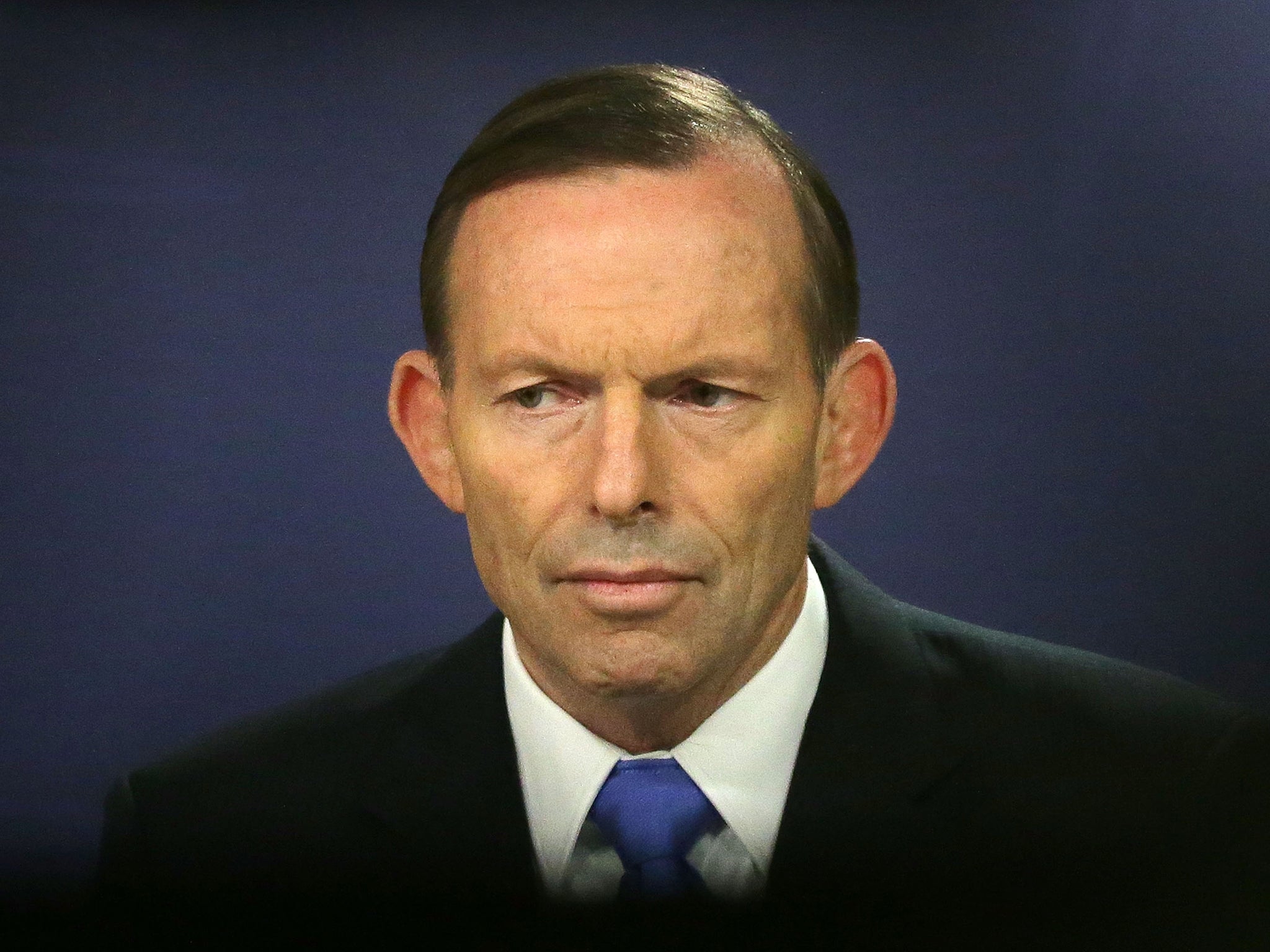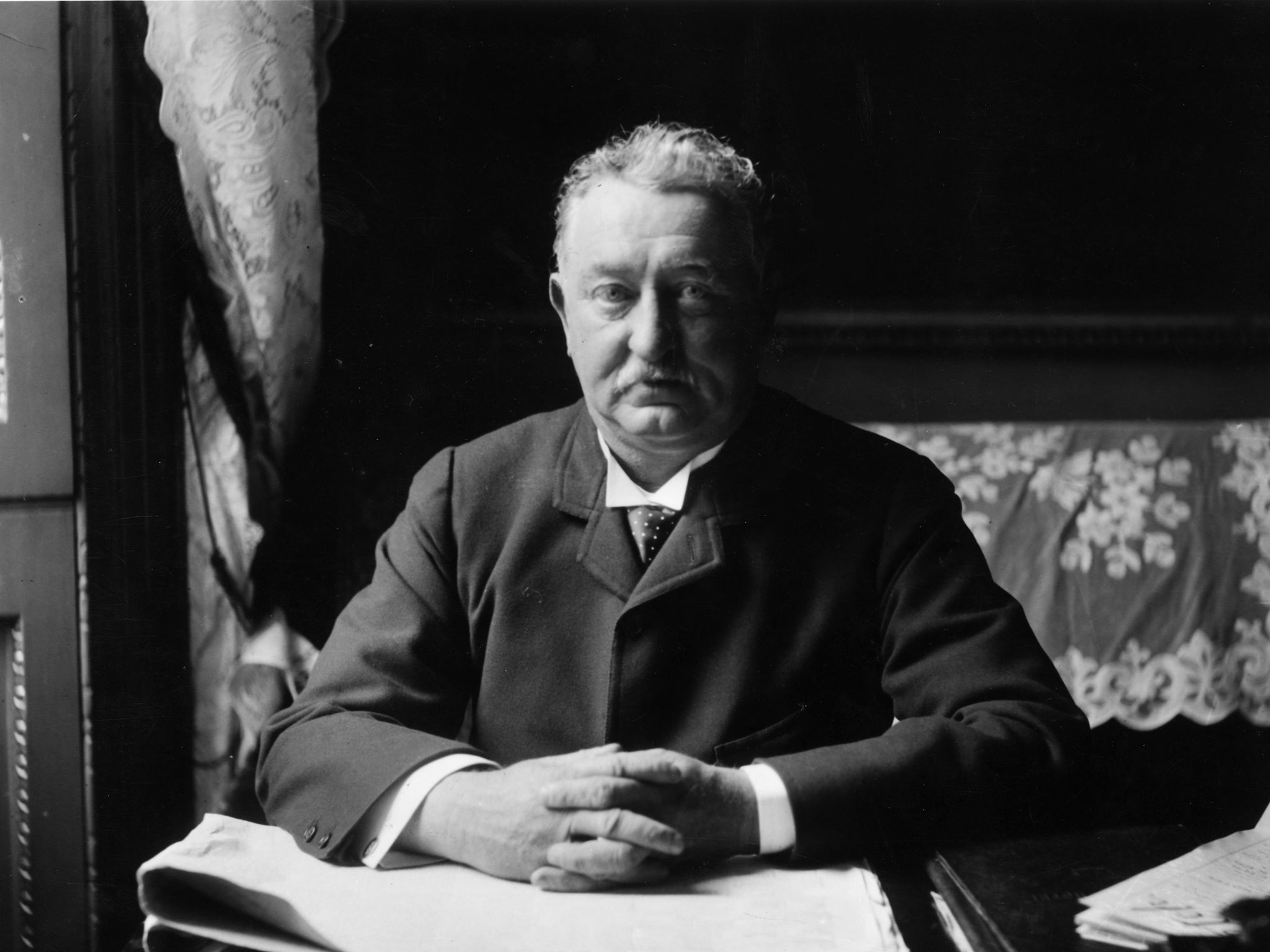Oxford University risks 'damaging its standing' if it pulls down Cecil Rhodes statue, warns Tony Abbott
Exclusive: Former Australian PM says giving in to pressure would be 'substituting moral vanity for fair-minded enquiry'

Your support helps us to tell the story
From reproductive rights to climate change to Big Tech, The Independent is on the ground when the story is developing. Whether it's investigating the financials of Elon Musk's pro-Trump PAC or producing our latest documentary, 'The A Word', which shines a light on the American women fighting for reproductive rights, we know how important it is to parse out the facts from the messaging.
At such a critical moment in US history, we need reporters on the ground. Your donation allows us to keep sending journalists to speak to both sides of the story.
The Independent is trusted by Americans across the entire political spectrum. And unlike many other quality news outlets, we choose not to lock Americans out of our reporting and analysis with paywalls. We believe quality journalism should be available to everyone, paid for by those who can afford it.
Your support makes all the difference.Former Australian Prime Minister Tony Abbott warns that Oxford University would “damage its standing as a great university” if it bowed to pressure to pull down a public statue commemorating African colonialist Cecil Rhodes.
Mr Abbott, himself a Rhodes scholar at the university in the 1980s, told The Independent that Oxford would be substituting “moral vanity for fair-minded enquiry” by allowing the statue to be pulled down.
The row over the statue began when a petition from the Rhodes Must Go Oxford campaign obtained 2,300 signatures calling for the statue at Oriel College - along with a separate Rhodes plaque – to be taken down.
The student campaigners say the tribute to Rhodes - whose legacy has led to around 8,000 students around the world obtaining Oxford scholarships - “violates the university’s declared aim of fostering an inclusive culture which promotes equality”.
Rhodes is seen by some as the founding father of apartheid and accused by students of harbouring racist and colonialist views.
However, Mr Abbott, who studied for a Bachelor of Arts in philosophy, politics and economics and graduated in 1983, wrote in an email to The Independent: “The students of Oriel should be clear-eyed about Rhodes’ faults and failings but proud of his achievements.
“The university should remember that its mission is not to reflect fashion but to seek truth and that means striving to understand before rushing to judge.”
He continued: “Racism is a dreadful evil but we all know that now. It’s hardly virtuous to be against racism today. Real virtue would have been to oppose racism when it was difficult to do so.
“It’s a pity that Rhodes was, in many respects, a man of his times. We can lament that he failed to oppose unjust features of his society while still celebrating the genius that led to the creation of the Rhodes scholarships. Rhodes was not a campaigner against racism but many of the scholars who are his legacy have been.
Mr Abbott added: “Oxford would damage its standing as a great university if it were to substitute moral vanity for fair-minded enquiry. The university and its students should prefer improving today’s orthodoxies to imposing them on our forebears.”
Mr Abbott is one of several Oxford academics and Rhodes scholars to speak out against those calling for the statue to be demolished.
Another former Rhodes scholar, RW Johnson, an emeritus felloe of Magdalen College, Oxford, likened the campaigners to “what al-Qaeda and Isil are doing in places like Mali - they are destroying historical artefacts and defacing them”.
“There are many people in history far worse than Rhodes,” he added.

In response, Brian Kwoba, a 33-year-old doctoral student at Oxford and one of the campaign’s organisers, said: “Cecil Rhodes is responsible for all manner of stealing land, massacring tens of thousands of black Africans, imposing a regime of unspeakable labour exploitation in the diamond mines and devising pro-apartheid policies.
“The significance of taking down the statue is simple: Cecil Rhodes is the Hitler of southern Africa. Would anyone countenance a statue to Hitler?”
Oriel College has already announced it plans to take down the plaque and is already in discussions with Oxford City Council. On the statue, the college has made it clear it in no way supports Rhodes’ views and is planning to launch a six-month consultation on its future in February - asking whether it should remain, be pulled down or whether a “third way” should be adopted whereby it stays up with an information board erected beside it making clear the college’s abhorrence of some of his views.
Both the latter two options would require planning consent as the statue is a Grade ii* listed building. The third option is being touted within the university as possibly the best way of pacifying both sides of the argument.
Born in 1853, Rhodes attended Oriel College in the 1870’s before returning to South Africa where he rose to be premier of the then Cape Colony. He died in 1902 - leaving a legacy to the college to fund scholarships for future generations of students from all over the world.
Join our commenting forum
Join thought-provoking conversations, follow other Independent readers and see their replies
Comments